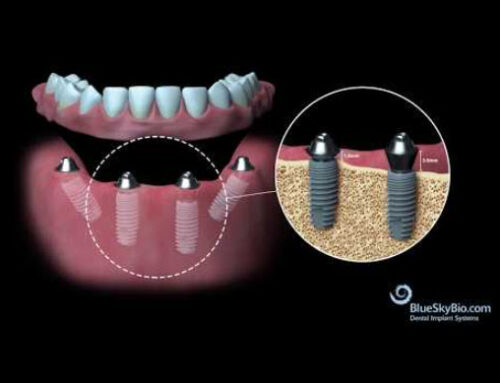It is a truth universally acknowledged that good teeth provide us, humans, with beauty and confidence. But even with this in mind, most of us take our teeth for granted. We’ve been taught a lot about oral hygiene and optimal brushing three times a day since we were all kids, but when tooth problems arise despite this ingrained habit, we rarely think of the implications that this may cause. When we realize that we have a tooth with dental caries or perhaps a random blister appearing out of nowhere, we rarely think about how this may impact your overall health. It’s “far from the gut” as they say where I’m from. And if it doesn’t hurt as much as a ruptured appendix, we don’t think twice about it. But honestly, we should think and research more about it. And it does pay to be mindful about the implications of what’s in your mouth right now.
Fillings, Extractions & Professional Cleanings
Everyone’s had memories of that small drill pushing into your tooth, perhaps during your first visit to the dentist. From the moment a drill is placed on enamel- which is the hard surface of your tooth- we are removing tooth structure that would be replaced by a tooth filling. In the past, dentists used to just drill off all the decayed stuff but nowadays the term “conservative dentistry” is getting more popular. The conservative approach is where professionals try to conserve as much tooth structure as they can instead of “extending drilling for prevention.” Teeth with more natural structure tend to resist fracture and breakage better since there is more natural tooth support. Now, how does this affect you? Two things:
- Some dentists place amalgam (which is the silver filling that was popular a decade ago) but due to health concerns due to the Mercury content, it is in the process of being phased out of dental practices.
- If too much tooth structure is removed your teeth might fracture which might lead to it being inevitable pulled out (more on the bad effects of extraction later).
Most of us have at some point in their lives get a tooth- or several- removed by the dentist. It might’ve had a big cavity and was just too broken down to keep. Or perhaps they were removed for orthodontic reasons? Whatever the reason, once you pull teeth out it’s gone forever and all you’re left with is that empty socket. Over time though, your teeth tend to drift and misalignment may change your bite. Sometimes your other teeth may adjust well, but sometimes the misalignment may cause damage to the other teeth present in the mouth. Your dentist can remedy this with a fixed bridge, denture, implant or by orthodontics. If you’ve had several of your back teeth removed, you may have bite collapse and this may result in jaw problems if you don’t have your dentist make a well-fitting denture for you. Jaw problems in turn may cause nutritional problems since it would be more difficult to take in food. It’s basically a whole chain of events that goes from having tooth decay to extraction and then to lack of proper nutrition due to biting problems.
Proper toothbrushing and flossing are important habits to have. This lessens the likelihood of periodontal disease progression. But every few months it’s still important to visit the dentist for professional cleaning. This is due to the fact that there are deep areas that may or may not be reached by normal toothbrushing methods. If these areas aren’t cleaned, this may buildup over time and trigger a condition called gingivitis which causes gums to bleed due to inflammation. Over time these areas become prime habitat for bacteria that would eventually affect the tooth’s bone and gum support. Periodontitis can be a serious dental problem that can have irreversible effects. Periodontitis has also been interlinked with diabetes, as some diabetes patients can easily develop periodontitis due to their systemic condition.
Basically, How Should You Take Care of Your Teeth?
All right, get your notepads or your phone’s notes app ready. Let’s talk about business now. So, how should we take care of one’s teeth?
- Brush properly, at a 45-degree angle towards your gums. Brush all the areas, even the inner part of your tongue! Don’t brush too hard as that may cause your gums to recede and make black triangles form between your teeth.
- Floss Properly by letting the string hug your tooth and moving it several times from the gum to the area of the tooth where you bite.
- Visit the dentist several times in a year for your checkup and professional cleaning. Prevention is better than cure, as they say.
- Don’t use your tooth as a bottle opener! Also don’t chew too often on ice/hard objects. This tends to create microfractures which may build up over time and cause a full tooth fracture.
- Wear protective gear and a mouth guard if you’re doing impact sports.
- Don’t smoke. Smoking not only affects your lungs, but it also has an effect on your gum’s healing ability and this may contribute to periodontal problems. Smoking has been proven by several studies to have a holistic effect on the whole body, and the effects just get worse the longer you continue the habit.
- For those that have systemic effects like diabetes or other healing problems, as much as possible take your prescribed medications as often as you need them.
The Bottomline
Taking the proper steps to actively take care of your teeth in your early years can help you enjoy your pearly whites for a longer amount of time. Avoiding cavities early on can help prevent tooth extractions from being necessary. Proper tooth brushing and visiting the dentist regularly can help avoid the occurrence of periodontal disease. Do your job, kids (and adults). Your teeth are important.







Leave A Comment
You must be logged in to post a comment.